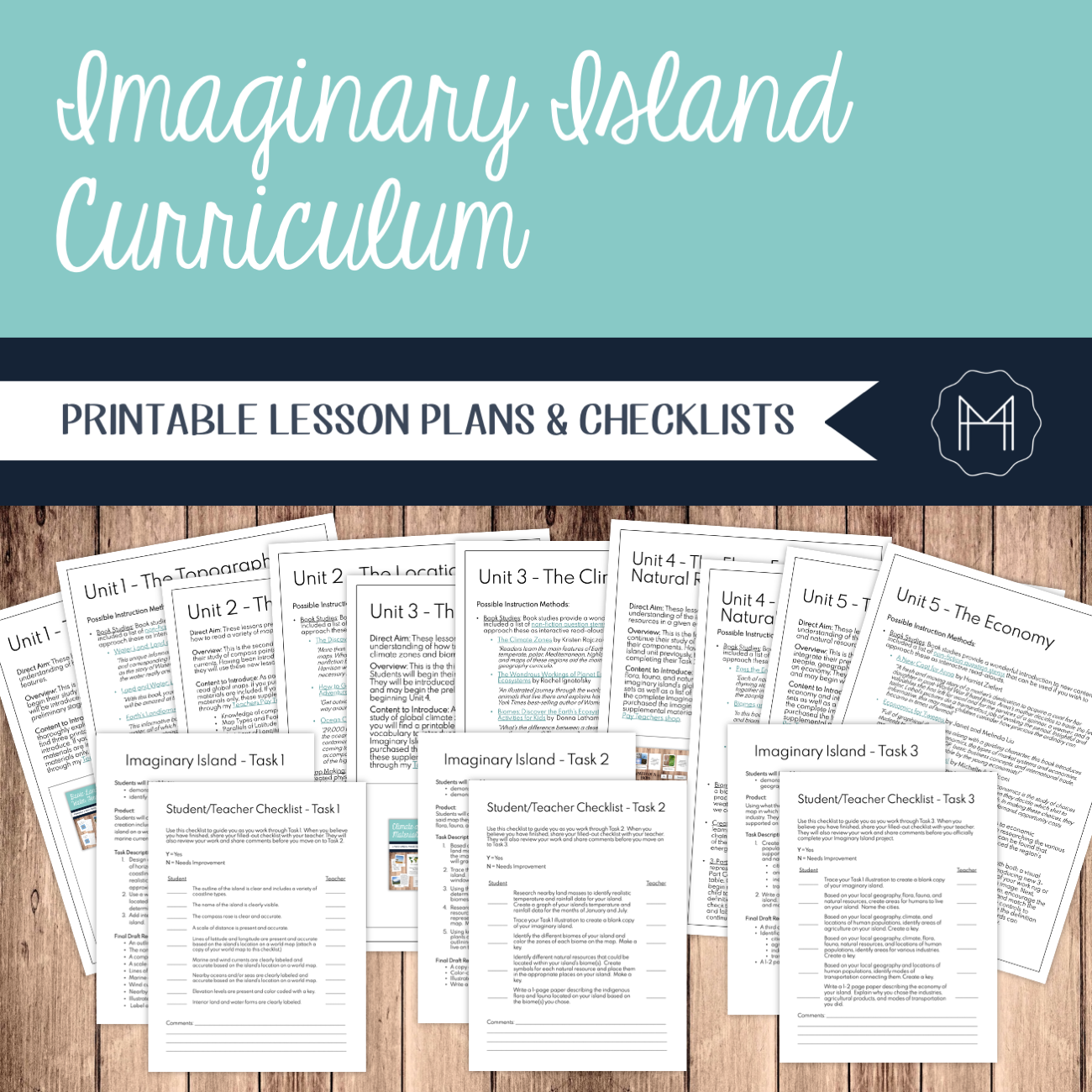The Modern Montessori Guide
Imaginary Island Scope and Sequence
Couldn't load pickup availability
The beauty of Montessori lessons can be seen in how seamlessly they build on one another, guiding the child to true comprehension. Though this is generally highlighted in the Montessori math and language curricula, a beautiful sequence can be seen as the child makes their way through the cultural curriculum as well.
Once they have reached upper elementary, the child combines their previous lessons and exploration into one, culminating project: The Imaginary Island. This integrates the concepts of Dynamic Geography, The Study of a Nation, The Study of Horizontal and Vertical Configurations, Biomes and Ecosystems, and Economic Geography. If desired, this project can also extend to include political geography and the development of a system of government on their island. The end goal is for the child to synthesize all previous lessons while letting their imagination take off!
The scope and sequence of instruction is broken into five units. As the activity begins, a series of lessons are presented that guide the child through the processes of developing their island’s geographical features, map making, understanding climate zones, constructing realistic biomes and corresponding flora and fauna, and finally possible economic development. The process of construction and developing their own island is completed in a series of three tasks.
*Note- You can purchase the supplemental materials listed on the lesson plan pages separately or as part of a discounted bundle.
Contents
Pg. 2: An Introduction to the Imaginary Island Curriculum
Pg. 3: Hyperlinked Scope and Sequence of Instruction
Pg. 4: Resource Explanations
Pg. 5: Unit 1 - Direct Aim, Overview, and Content to Introduce
Pg. 6: Unit 1 - Possible Instruction Methods
Pg. 7: Unit 2 - Direct Aim, Overview, and Content to Introduce
Pg. 8: Unit 2 - Possible Instruction Methods
Pg. 9: Unit 3 - Direct Aim, Overview, and Content to Introduce
Pg. 10: Unit 3 - Possible Instruction Methods
Pg. 11: Unit 4 - Direct Aim, Overview, and Content to Introduce
Pg. 12: Unit 4 - Possible Instruction Methods
Pg. 13: Unit 5 - Direct Aim, Overview, and Content to Introduce
Pg. 14: Unit 5 - Possible Instruction Methods
Pg. 15: Task 1 - Instructor Page
Pg. 16: Task 1 - Student/Teacher Checklist
Pg. 17: Task 1 - World Map
Pg. 18: Task 2 - Instructor Page
Pg. 19: Task 2 - Student/Teacher Checklist
Pg. 20: Task 3 - Instructor Page
Pg. 21: Task 4 - Student/Teacher Checklist
Pg. 22: Non-Fiction Question Stems
Pg. 23: Terms of Use
Share


